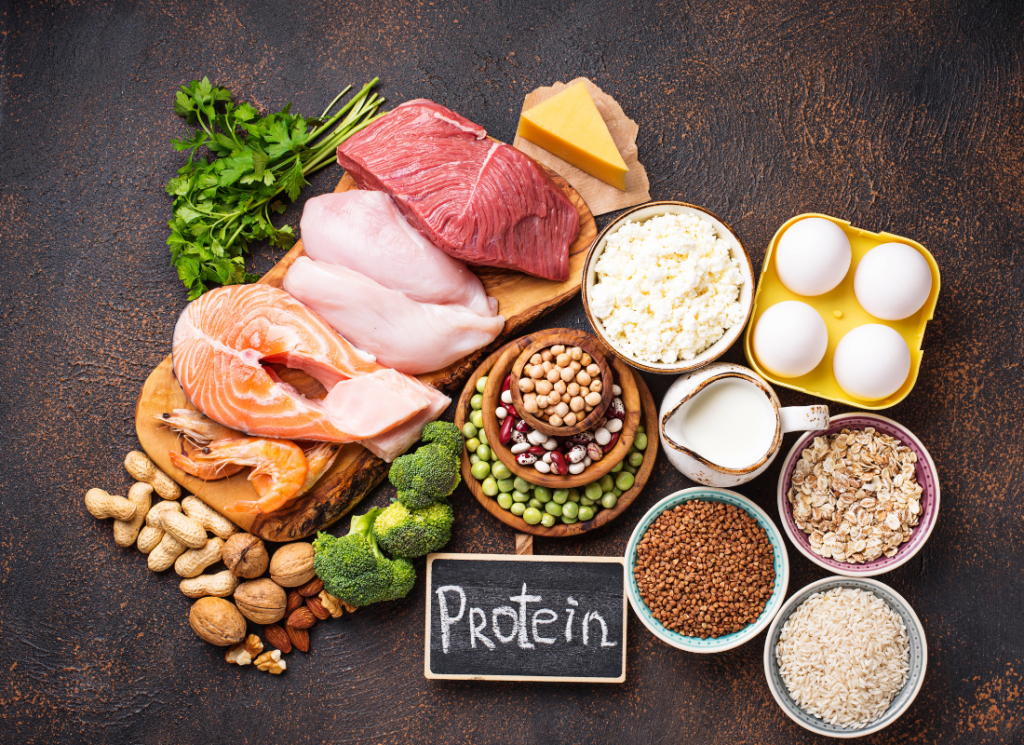Unlock the nutritional potential of eggs! Dive into their rich protein, vitamin, and mineral content. Explore their health benefits, facts, and why free-range options are recommended
Table of Content:
- Eggs Health Benefits
- Eggs Nutritional Value
- Scrambled or Boiled Eggs
- Are Eggs Healthy?
- Free Range Eggs
- Eggs Facts
Eggs Health Benefits
There is no other natural product in the world that would accumulate so many nutrients. Rich in protein, unsaturated fats, and essential vitamins and minerals, eggs should become a common dish on our table.
Eggs Nutritional Value
Eggs are low in calories; 100g of the product, which is about two medium-sized eggs, provide approximately 140 kcal. Additionally, they contain about 12g of protein, 9g of unsaturated fatty acids, including lecithin, and numerous vitamins such as A, D, E, K, B1, B2, B6, and B12, as well as trace elements including magnesium, iron, iodine, potassium, calcium, phosphorus, sodium, zinc, fluoride, silicon, copper, selenium, manganese, and sulfur.
Scrambled or Boiled Eggs
Dieticians argue that eggs in any form are a valuable addition to our daily diet. However, some of them believe that the healthiest form is soft-boiled. Fried eggs are not recommended for people on a diet due to the necessary use of fat during frying. However, steamed eggs are a recommended alternative.
Are Eggs Healthy?
Scientific discussions among dieticians in the past century have raised doubts about the health benefits of eggs, suggesting the need to limit their consumption. Simultaneously, with the discovery of the mechanism of atherosclerosis development, all cholesterol-rich products, including eggs, were considered harmful. In Poland, there was quite an effective discouragement from consuming eggs, whereas the cholesterol contained in them poses no greater risk of atherosclerosis to individuals with normal metabolic function.
Free Range Eggs
It is certainly worth choosing eggs that come from organic sources (marked with the number 0 on the shell) or free-range eggs (marked with the numbers 1 or 2). Those marked with the number 3 come from hens raised in cages and fed with feeds containing various pharmacological agents, including antibiotics.
Eggs Facts
- The World Health Organization (WHO) recommends consuming up to 10 eggs per week because they are a rich source of protein, vitamins, and minerals.
- The omega-3 fatty acids and lecithin found in egg yolks have anti-dandruff and anti-thrombotic effects. They also prevent the deposition of atherosclerotic plaque.
- In addition to their health benefits, egg yolks are also used in cosmetics. They are ingredients in some masks, shampoos, and hair conditioners.
See also
The Ultimate Guide to Low Carb Eating
(Reading Time: 3 minutes) When adhering to a low carb eating regimen, it’s essential to…
Cinnamon Health Secret: Massages and Baths that Relax and Cleanse
(Reading time: 2 minutes and 11 seconds) Discover the magical world of cinnamon – not…
Peas, Beans, and Cabbage – Transforming Your Life
(Reading time: 3 minutes) Experience a transformative journey towards better health and vitality as we…
Watermelon – The Perfect Potency Booster
(Reading time: 3 minutes) Discover the natural potency booster hiding in your fruit bowl –…
Energize Your Day: Introducing Bacon, Pear, and Nut Spread!
(Reading time: 2 minutes) Experience a burst of energy like never before with our Bacon,…
Spice Up Your Digestive Health: A High-Fiber Smoothie Recipe for Constipation Relief
(Reading time: 2 minutes 30 seconds) Struggling with constipation, especially during pregnancy, can be uncomfortable…
Discover the Health Wonders of Plums!
(Reading time: 1 minute) Unlock the nutritional treasures of plums! Whether it’s Hungarian, Renklod, or…
B12 Deficiency Symptoms
B12 Deficiency (Read time 2 minutes and 30 seconds). Vitamin B12, an essential water-soluble nutrient…
Mandarins: A Burst of Flavor and Wellness
(Reading time: 2 minutes) Unlocking the vibrant potential of mandarins extends far beyond their role…
Sunny Mandarin Jam: A Burst of Citrus Sunshine in Every Bite!
(Reading time: 2 minutes) Mandarin Jam – The refreshing taste of sunny mandarins sealed in…
Harnessing the Healing Power of Home-Made Raspberry Juice
(Reading time: 2 minutes) In the comforting embrace of traditional remedies, there exists a cherished…
Toothache relief. Check Those TOP 7 natural remedies
(Time of read: 2 minutes) Are you seeking relief from the discomfort of a toothache…
Nourishing Benefits of White Dead-nettle Infusion. Check those recipes!
(Reading time: 2 minutes) In the realm of traditional herbal remedies, the unassuming white dead-nettle…
Rediscovering Lard: A Nutritional Powerhouse and Home Remedy Hero
(Reading time: 2 minutes) Pork and goose lard contain healthy monounsaturated and polyunsaturated fats. We…
Managing Menopause: A Holistic Approach to Health and Well-being
(Reading time: 3 minutes) Navigating menopause requires a comprehensive approach to health and well-being. As…
Antiinflammatory Meals Dinner – Egg Casserole with Kale
Antiinflammatory Meals Dinner (Read time: 2 minutes 40 seconds). Inflammation is a natural response by…
Increasing Memory Issues? Explore These 5 Potential Causes
(Reading time: 1 minute and 29 seconds) Experiencing memory lapses? Investigate these 5 potential culprits:…
Nature’s Arsenal: 5 Innovative Strategies to Combat Tooth Decay
(Reading Time: 3 minutes and 23 seconds) In the quest for a radiant smile and…
7 Rules You Must Follow to Maintain Good Eyesight for Years
(Reading time: 6 minutes and 20 seconds) In the hustle and bustle of modern life,…
4 Miracles of Lemon
(Time of read: 2 minutes) Lemon, a versatile citrus fruit, is not only a flavorful…
Stinging Nettle: Nature’s Cure-All. Explore This Nettle Juice Recipe
(Time of read: 2 minutes and 30 seconds) Often brushed aside as a pesky nuisance…
Herbal Remedies Recipes for Pelvic Inflammatory Disease: Nature’s Healing Touch
(Time of read: 3 minutes and 30 seconds) Pelvic inflammatory disease (PID) can strike suddenly…
Comprehensive Rehabilitation Strategies for Tetanus: Alleviating Symptoms and Enhancing Well-being
(Time of read: 3 minutes and 19 seconds) Tetanus, a potentially life-threatening condition characterized by…
Living with joint inflammation (rheumatism)
(Time of read: 2 minutes 19 seconds) Our fingers stiffen, and we struggle to handle…
Revitalize Your Liver: Post-Party Detox Guide
(Read time: 3 minutes) After a night of indulgence, your liver may need some extra…
Is Buttermilk the Ultimate Health Elixir? Unlocking Its Potential
(Reading time: 2 minutes) Buttermilk, a beverage cherished for its refreshing taste and versatility in…
Healthy Eating Habits: A Vital Strategy in Cancer Prevention
(Reading Time: 2 minutes) In today’s food market, an abundance of choices confronts us. But…
5 Simple Methods for Hypertension
(Reading time: 2 minutes) When we have high blood pressure, doctors usually prescribe medication. Sometimes…
9 Grandma’s Remedies for Cold and Cough
(Reading time: 2 minutes and 3 seconds) Scientists increasingly acknowledge that traditional methods from years…
5 Rules of Healthy sleep. How to Regenerate Yourself
(Time of read: 2 minutes) Approximately one-third of our lives is spent sleeping, a period…
11 Rules of Healthy Eating to lose Weight
(Reading time: 3 minutes) Struggling unsuccessfully with overweight and obesity? Can’t stick to a diet?…
Choking is deadly. Perform the Heimlich Maneuver
(Reading time: 2 minutes, 28 seconds) What may seem harmless can turn into a life-threatening situation….
Protein Power: Understanding the Essential Role of Protein in Boosting Diet and Performance
(Time of read: 1 minute) Awareness of the role of protein in the diet as…
Black Radish Medicinal Tincture Recipe
(Read time: 30 seconds) Are you seeking a natural remedy to support your digestive system?…
Hypertension. Balancing Blood Pressure: Tips for Healthy Aging
(Reading time 2 minutes and 1 seconds) As people age, it’s natural for blood pressure…
Unlocking the Hidden Potential of Whey: A Nutritional Revelation for Wellness Enthusiasts
(Read time: 2 minutes and 42 seconds) Often dismissed as a mere by-product of cheese-making,…
Top 5 foods for maintaining healthy gums. Uncover the lesser-known qualities of these food items.
(Read time: 1 minute 35 seconds) Discovering the secret to healthy gums lies not only…
Are you providing enough collagen to Your body? Check this Three-week diet to alleviate joint pain
Follow this diet at least twice a year for three weeks if you experience joint…
How to sit with hemorrhoids? Try those tips for quick pain relief
Are you struggling with hemorrhoid discomfort and looking for effective ways to alleviate the pain…
Berry Brilliance: Unraveling Cranberry’s Health Benefits
Table of content: What are cranberry health benefits? Cranberry juice for circulation Recipe for heart-friendly…
Top 7 Reasons to Eat Brussels Sprouts. You’ll be shocked
Unlock the health benefits of Brussels sprouts with these top reasons to include them in…
How to Combat Helicobacter Pylori Naturally: Symptoms, Risks, and Manuka Honey Remedies
If you often suffer from digestive problems, get tested for the presence of this bacterium….
How to repair dry hair. Simple yet effective tips
Revive your dry, lackluster hair with simple tweaks and professional care. From nutrient-rich diets to…
7 key areas to measure your weight loss. Size Matters
Empowering yourself with the knowledge of how to accurately measure your body’s changes during weight…
Top 9 reasons to eat watercress. An absolute superfood
Discover the year-round powerhouse of nutrition with watercress, a superfood packed with essential vitamins and…
7 steps to deal with burns
When you experience a burn, swift reaction is crucial. This includes immediate cooling of the…
Test Yourself for Age-related Macular Degeneration. You may be in danger
Detect Age-related Macular Degeneration early with the Amsler Grid test. Developed by Prof. Marc Amsler,…
What are Heart Palpitations and How to Stop Them?
Unlock the mysteries of heart palpitations with our comprehensive guide. From understanding causes to recognizing…
















































